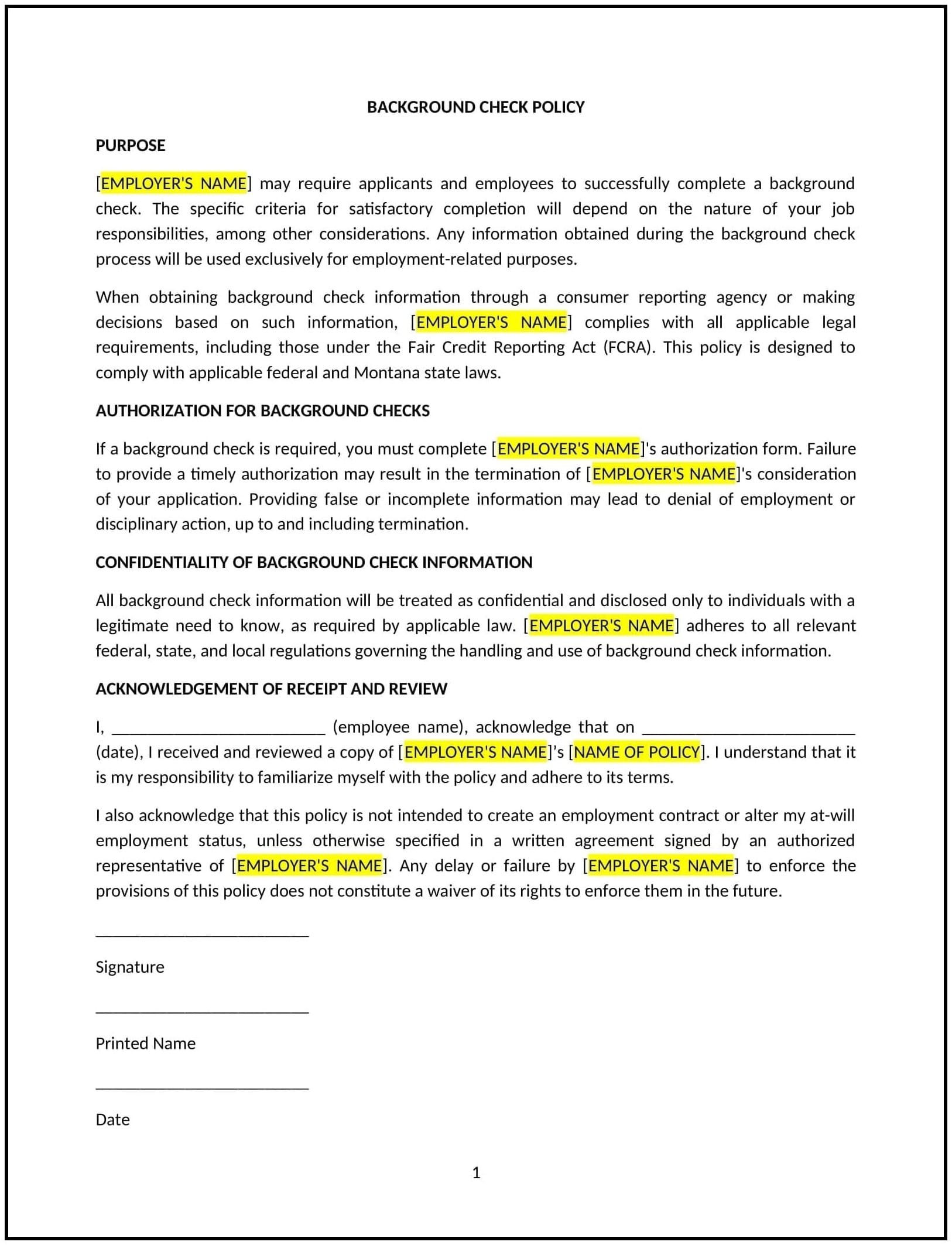Got contracts to review? While you're here for policies, let Cobrief make contract review effortless—start your free review now.

Customize this template for free
Background check policy (Montana)
A background check policy helps Montana businesses establish clear guidelines for screening job candidates and employees in a fair and consistent manner. This policy outlines the types of background checks businesses may conduct, how results are handled, and the procedures for making employment decisions based on findings. It ensures that hiring practices align with business needs while respecting applicants’ rights.
By implementing this policy, businesses can make informed hiring decisions, promote workplace safety, and minimize risks associated with negligent hiring.
How to use this background check policy (Montana)
- Define when background checks are required: Businesses should specify which positions require background checks, such as roles involving financial responsibilities, sensitive data access, or working with vulnerable populations.
- Identify the types of background checks conducted: Businesses should outline which checks may be used, such as criminal history, employment verification, education confirmation, credit checks, and drug testing.
- Establish authorization and disclosure procedures: Businesses should obtain written consent from candidates before conducting background checks and provide necessary disclosures as required by Montana and federal laws.
- Set guidelines for evaluating results: Businesses should determine how background check findings impact hiring decisions, ensuring a fair and consistent review process.
- Outline confidentiality measures: Background check results should be handled securely, limiting access to authorized personnel only.
- Provide a process for disputing results: Businesses should allow candidates to dispute any inaccurate background check findings and provide them with an opportunity to explain discrepancies.
- Review and update regularly: Businesses should periodically assess the policy to align with changes in state regulations and hiring best practices.
Benefits of using this background check policy (Montana)
This policy provides several key benefits for Montana businesses:
- Improves hiring decisions: Businesses can assess candidates based on verified information, reducing the risk of hiring unqualified individuals.
- Enhances workplace safety: Background checks help identify potential risks, promoting a secure work environment for employees and customers.
- Protects against negligent hiring claims: A structured screening process helps businesses demonstrate due diligence in hiring practices.
- Provides consistency in hiring: A standardized policy ensures that all candidates are evaluated under the same criteria, promoting fairness.
- Safeguards sensitive information: Proper handling of background check results helps maintain privacy and compliance with legal requirements.
- Reduces turnover and hiring costs: Businesses can make more informed hiring decisions, leading to better employee retention and fewer hiring mistakes.
Tips for using this background check policy (Montana)
- Communicate the policy clearly: Businesses should inform candidates and employees about the background check process and their rights.
- Ensure proper authorization: Candidates should provide written consent before background checks are conducted.
- Apply screening consistently: Businesses should follow the same procedures for all applicable positions to prevent discrimination claims.
- Limit access to sensitive data: Background check results should be securely stored and only shared with authorized personnel.
- Provide an appeal process: Candidates should have an opportunity to correct or dispute inaccurate background check findings.
- Stay informed about legal updates: Businesses should monitor changes in Montana background check laws to ensure policy compliance.